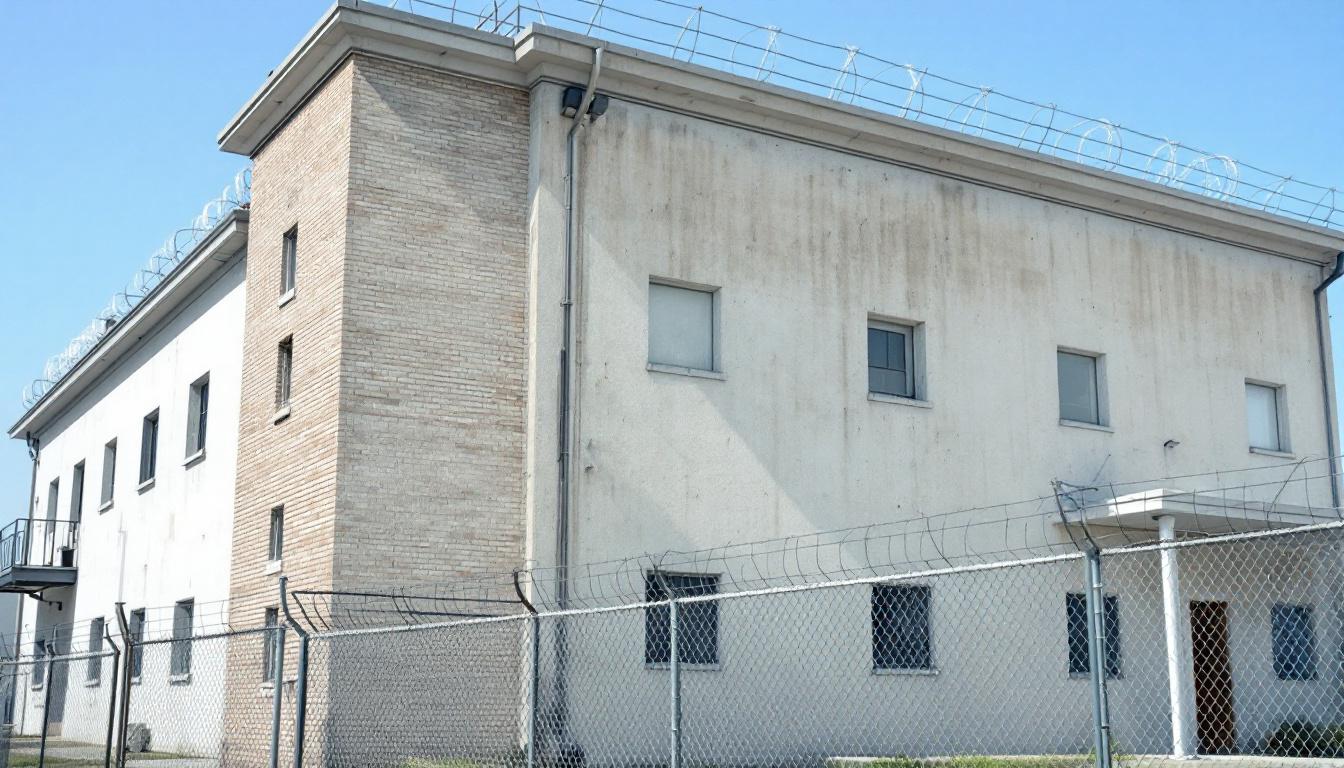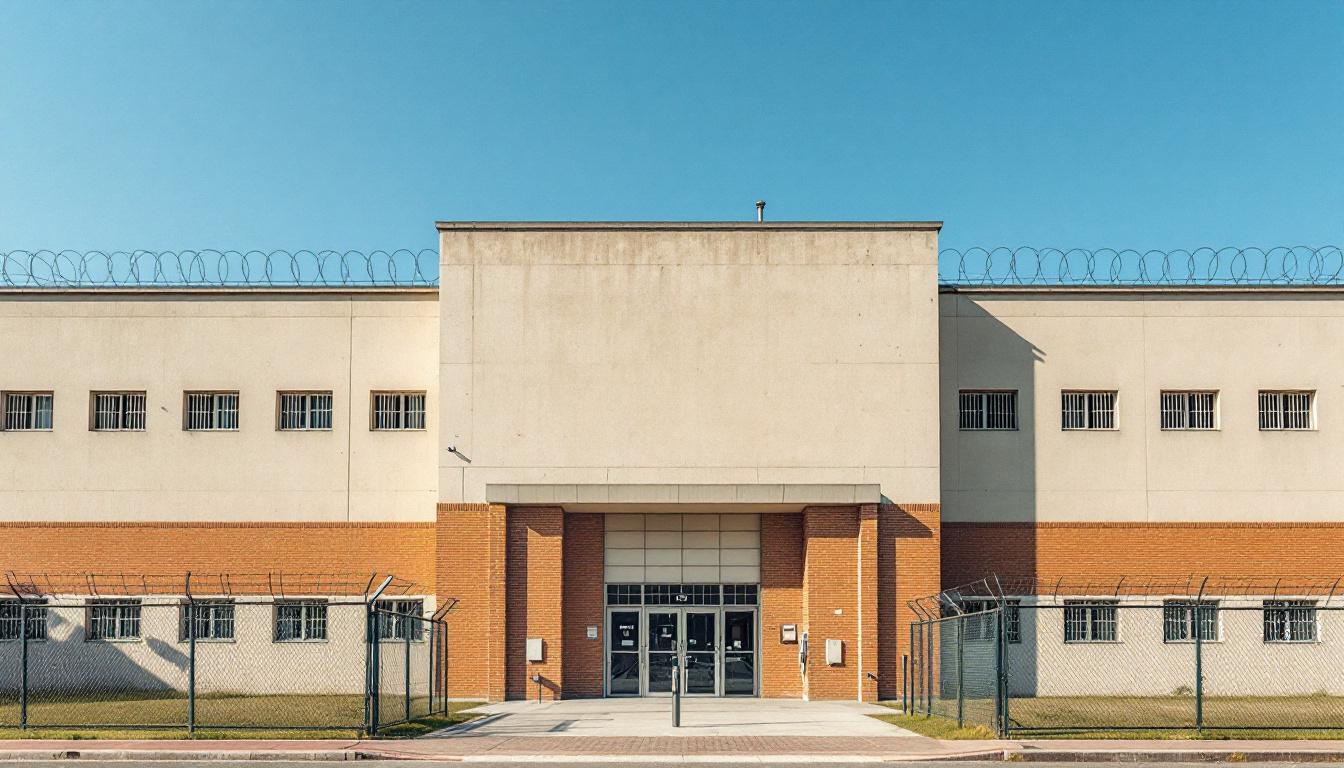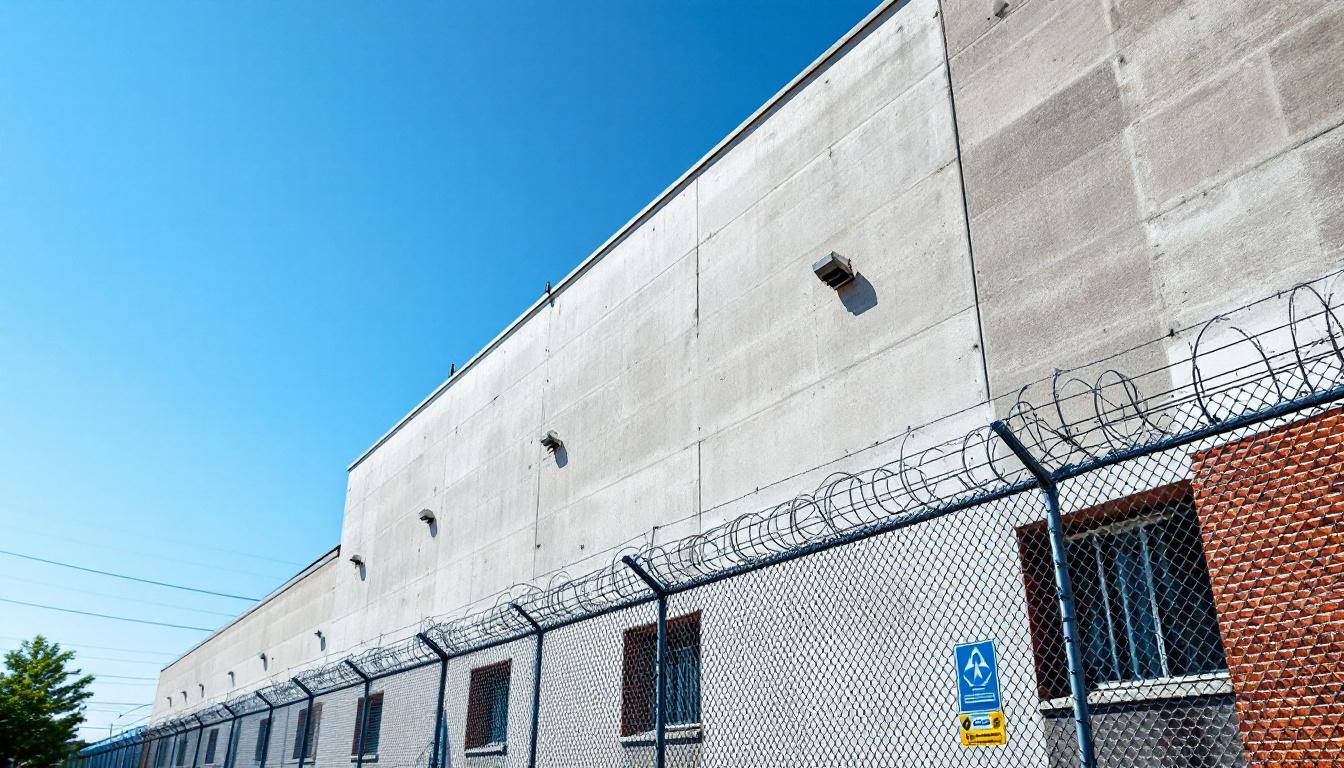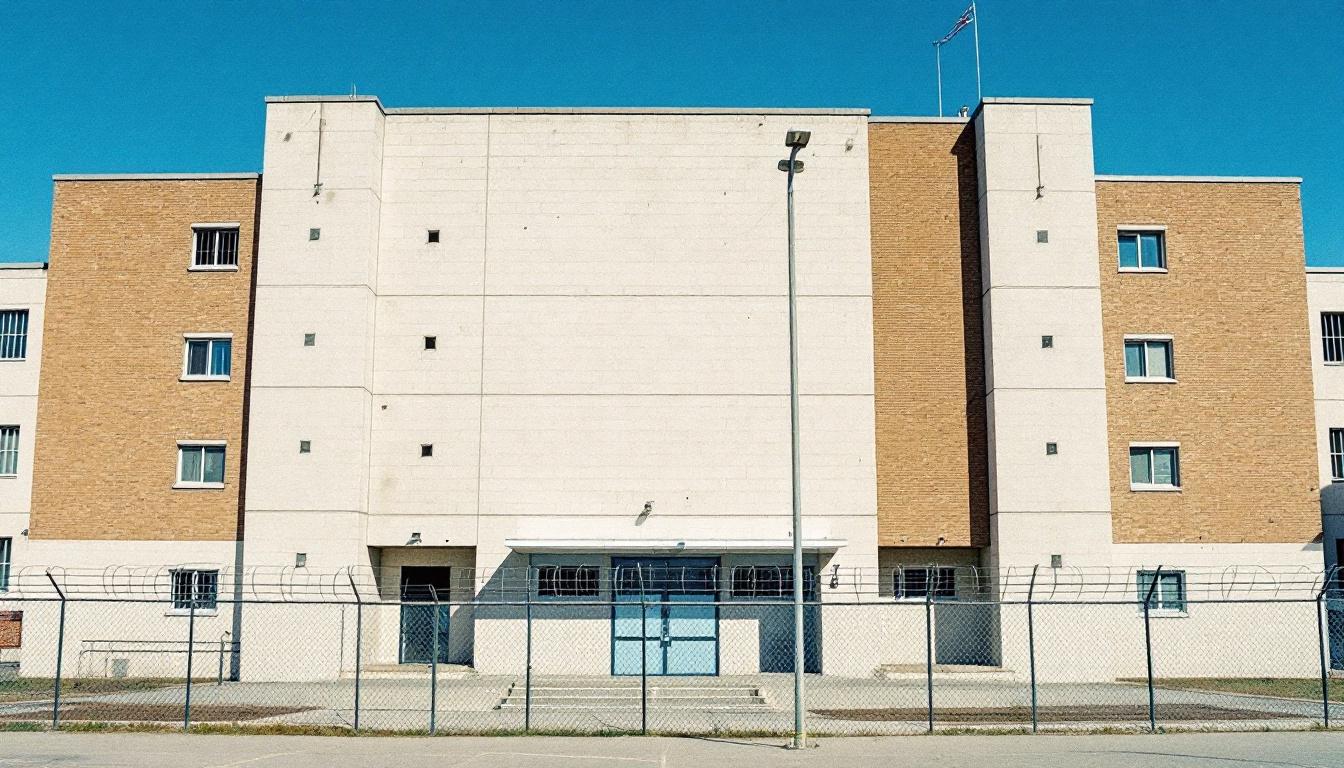
Quick Navigation
How to contact an inmate at Marion County Sheriff Department
This comprehensive guide will walk you through how to connect with an inmate at Marion County Sheriff Department. Follow the steps below to find an inmate and send letters and photos:
- Search for the inmate using our search tool below
- Create your account or log in to Penmate
- Write your message (up to 6,000 characters)
- Send instantly - inmates receive printed copies daily
Find an Inmate
Search for an inmate to start communicating today
Tip: You can search by first name, last name, or inmate ID number
To contact a person at Marion County Sheriff Department start by searching for the person on the official facility website. Perform a search by following these steps:
- Step 1: Enter their first name and last name into the search form and click "Search"
- Step 2: Locate their inmate record
- Step 3: Write down their Inmate ID and any housing information provided
Important! Be sure to enter the person's full name. Nicknames should not be used.
How to Send Messages to Inmates

You can use your phone or computer to send emails, letters, and photos to an inmate. Messages are sent electronically to inmate tablets or kiosks at the facility. If you would like to send a message, start by searching for an inmate at Marion County Sheriff Department.
Sending Photos and Postcards

A great way to send love and support to a loved one at Marion County Sheriff Department is to send photos and postcards. It only takes a few minutes to send photos from your phone and it makes a huge difference. You can also mail postcards with words of support and inspiration, or design your own postcard for special moments like birthdays and holidays.
Important! Be sure not to send any explicit photos or they may not be approved by the facility. You can also use a photo printing app like Penmate to make sure your photos are printed at the correct size (4x6 or 3x5) and are mailed according to the rules and regulations of Marion County Sheriff Department.
Frequently asked questions about Marion County Sheriff Department
-
How long does it take to deliver a message?
If you're sending an email message your letter is usually delivered within 24-48 hours. For messages sent via mail you should expect delivery within 3-7 days. All messages will need be approved by Marion County Sheriff Department.
-
How much does it cost to send a message to Marion County Sheriff Department?
You can send a message free using your phone or mail a message via USPS for the price of a $0.60 stamp and envelope. You can also purchase credits or e-stamps from services starting at $1.99.
-
What services can I use to contact an inmate at Marion County Sheriff Department?
Penmate
You can use Penmate to send letters and photos to an inmate from your phone. It's an easy way to stay in touch during your loved one's incarceration. Use the inmate locator to find an inmate's location and contact information, then you can send messages within a few minutes.
Securus messaging
Securus may be another option for communicating with an inmate at Marion County Sheriff Department. You can create a friends and family account and purchase credits to send messages. All messages will be reviewed and must be approved by the facility.
JPay
Some county jails and state prisons may support sending messages with JPay. You must register an account with the system, find your loved one, and purchase stamps to send messages. For some locations you can also attach photos.
Smart Jail Mail
You may also check if Smart Jail Mail is available at Marion County Sheriff Department. Smart Jail Mail is operated by Smart Communications and has contracted with some state and county jails. After purchasing credits, your messages and photos are sent to the facility, printed out, and then handed out to your loved one.
-
What is the mailing address of Marion County Sheriff Department?
Mailing address:
Marion County Sheriff Department
5 Oak Ave
Jasper, TN 37347
Phone: (423) 942-2525Business hours:
- Monday: Open 24 hours
- Tuesday: Open 24 hours
- Wednesday: Open 24 hours
- Thursday: Open 24 hours
- Friday: Open 24 hours
- Saturday: Open 24 hours
- Sunday: Open 24 hours
-
What are the visiting hours at Marion County Sheriff Department?
Visiting hours at Marion County Sheriff Department vary by housing unit and security level. Generally, visits are scheduled on weekends and holidays, with some facilities offering weekday visits. Contact the facility directly at (423) 942-2525 or check their website for the current visiting schedule. Visits typically last 30-60 minutes and must be scheduled in advance.
-
What items are prohibited when sending mail to Marion County Sheriff Department?
Prohibited items typically include: cash, personal checks, stamps, stickers, glitter, glue, tape, staples, paperclips, polaroid photos, musical or blank greeting cards, hardcover books, magazines with staples, and any items containing metal or electronics. Only send letters on plain white paper with blue or black ink. Photos must be printed on regular photo paper (no Polaroids). Always check with Marion County Sheriff Department for their specific mail policies.
-
How do I send money to an inmate at Marion County Sheriff Department?
You can send money to an inmate at Marion County Sheriff Department through several methods: 1) Online using JPay, Access Corrections, or the facility's approved vendor, 2) Money orders mailed directly to the facility with the inmate's name and ID number, 3) Kiosks located in the facility lobby, or 4) Over the phone using a credit or debit card. Fees vary by method, typically ranging from $2.95 to $11.95 per transaction.
-
Can I schedule a video visit with an inmate at Marion County Sheriff Department?
Many facilities now offer video visitation as an alternative to in-person visits. At Marion County Sheriff Department, video visits may be available through services like Penmate, Securus Video Connect, GTL, or ICSolutions. Video visits typically cost $10-20 for 20-30 minutes and must be scheduled in advance. You'll need a computer or smartphone with a camera and reliable internet connection. Contact the facility for their specific video visitation policies and approved vendors.
-
What identification do I need to visit an inmate at Marion County Sheriff Department?
All visitors must present valid government-issued photo identification such as a driver's license, state ID, passport, or military ID. Minors must be accompanied by a parent or legal guardian who can provide the minor's birth certificate. Some facilities require visitors to be on the inmate's approved visitation list, which may require a background check. Contact Marion County Sheriff Department for specific ID requirements and visitor approval procedures.
-
How can I find out an inmate's release date?
To find an inmate's release date at Marion County Sheriff Department, you can: 1) Use the online inmate search tool if available, 2) Call the facility's records department, 3) Contact the inmate's case manager or counselor, or 4) Have the inmate provide this information during a call or visit. For privacy reasons, some facilities only release this information to immediate family members.
Facility Overview
Contact Information
Marion County Sheriff Department5 Oak Ave
Jasper, TN 37347
Phone: (423) 942-2525
Official Website

About Marion County Sheriff Department
County jail facilities serve as critical components within Tennessee's correctional infrastructure, and Marion County Jail, TN exemplifies this essential role while serving the Jasper community and surrounding areas. As a TN correctional facility, it operates within the broader framework of local law enforcement and judicial processes, typically housing individuals awaiting trial, serving shorter sentences, or transitioning between different phases of the legal system.
Located in Jasper, Tennessee, this facility reflects the region's commitment to balancing secure detention with meaningful rehabilitation opportunities. The population services generally encompass various programs designed to address underlying issues that may contribute to criminal behavior, including educational initiatives, substance abuse counseling, and vocational training when resources permit. Staff members typically work to maintain a structured environment that prioritizes both public safety and the potential for positive change among those in custody.
Marion County Jail's operational approach often emphasizes preparing individuals for successful reintegration into the community upon release. This county jail may offer religious services, mental health support, and family visitation programs that help maintain important personal connections during incarceration. The facility's role extends beyond mere detention, as it frequently collaborates with local organizations and social services to create pathways toward rehabilitation and reduced recidivism, reflecting broader trends in modern correctional philosophy throughout the South.
Programs & Services
Through comprehensive support initiatives designed to address the multifaceted needs of incarcerated individuals, Marion County Jail emphasizes rehabilitation and personal development as cornerstones of successful reintegration. The facility's approach recognizes that meaningful change occurs when the population receives access to diverse programming that builds both practical skills and personal resilience. These carefully structured programs typically focus on breaking cycles of recidivism while fostering connections to community resources that extend beyond incarceration.
Educational programming forms a vital component of the facility's rehabilitative framework, with education services that may supply basic literacy instruction, GED preparation, and continuing education opportunities. Financial literacy programs often provide essential knowledge about budgeting, credit management, and financial planning that proves invaluable upon release. Also available through distance learning initiatives, the population can typically access expanded educational opportunities that accommodate various learning styles and schedules, allowing individuals to pursue academic goals while maintaining other institutional responsibilities.
Vocational programs complement educational offerings by providing hands-on training in marketable skills that enhance employment prospects following release. Faith-based programs create supportive environments where participants often find spiritual guidance and community connections that strengthen their commitment to positive change. Also integrated into the programming structure, community service opportunities allow the population to contribute meaningfully to local initiatives while developing a sense of civic responsibility and personal worth that supports long-term rehabilitation goals.
Daily Life & Visitation

Structured scheduling and systematic organization form the backbone of how the population experiences each day at Marion County Jail, with clearly defined routines that are actively maintained to supply stability and order throughout the facility. At present, residents typically follow a regimented schedule that begins with early morning wake-up calls, followed by head counts, meal service, and various programmed activities that are distributed across different housing units according to security classifications and individual needs. The systematic approach to daily management generally includes designated times for personal hygiene, cleaning responsibilities, and structured movement between different areas of the facility, with staff actively coordinating these transitions to maintain security protocols while allowing the population to participate in available programming.
Housing accommodations within the facility typically consist of dormitory-style units and individual cells, depending on classification levels and available space, with residents generally assigned based on factors such as security risk, behavioral history, and specific needs assessments. The population usually shares common areas within their designated housing units, which may include dayrooms equipped with tables, seating, and television access during approved hours. Also, personal property allowances typically include basic hygiene items, limited clothing, and approved reading materials, while commissary services generally provide opportunities for residents to purchase additional approved items using funds from their individual accounts, subject to facility regulations and security considerations.
Structured programming schedules often supply educational opportunities, religious services, and recreational activities that are rotated among different housing units to accommodate the entire population while maintaining security requirements. However, recreational time typically includes access to outdoor areas when weather and staffing permit, along with indoor activities such as board games, reading, and television viewing during designated hours. Family connections are generally maintained through scheduled visitation periods, telephone access during approved times, and correspondence services, with specific policies typically governing the frequency and duration of these communications to balance family contact with operational security needs.
Ready to Connect?
Start communicating with your loved one today
Search for an Inmate









